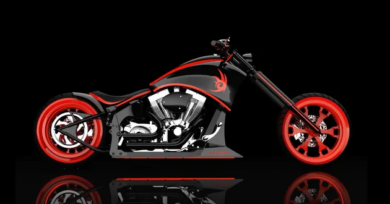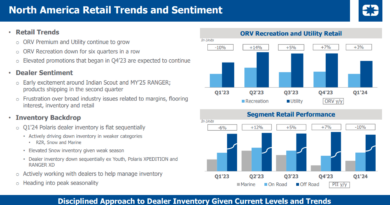PWC – Racing Age is Lowered Dramatically
In a move that is certain to delight the vast majority of the personal watercraft racing crowd, the International Jet Sports Boating Association (IJSBA) announced in late January that the competition age for the Junior Ski division would be lowered to 10-years-old. Quickly following suit, the United States Watercraft Racing Association (USWRA) as well as the American PowerBoat Association (APBA) issued releases of their own, announcing a new emphasis on youth racing that falls within the IJSBA parameters.
WELCOME NEWS
Race promoters, industry observers, and sanctioning bodies alike have made no secret of their desire to lower the age at which up-and-coming racers can participate in IJSBA-sanctioned events. For most industry insiders, the move made perfect sense. Other so-called “extreme” sports have seen their youth ranks swell in recent years, with competition in everything from motocross to snowmobiling welcoming the youngsters into the fold, and allowing them to grow with the sport. In contrast, many in the PWC industry have been left to watch in frustration as youth, too young to legally operate a PWC in most state waters, have gravitated towards other sports, rather than develop a passion for personal watercraft. The IJSBA’s decision is seen as a welcome change that could once again get youth racers excited about the sport.
“I am excited about the opportunity to get the younger riders involved in our sport at an earlier age,” said IJSBA Managing Director Biorn Tangeland. “Several countries allow 10-year-old racers, but they have not been able to participate at World Finals because of the previous age limit of 14.”
The change will affect only limited classes, including Freestyle and three Junior classes in the Ski division only, Junior Ski 10-12 Stock, Junior Ski 13-15 Stock, and Junior Ski 13-15 Limited. Riders from these classes will be eligible to compete at the World Finals this October.
“This is truly great news for personal watercraft racing and its future,” stated USWRA head Jacques Bryant. “For years, our youth has had the opportunity to participate in many other extreme sports, such as skateboarding, motocross, go-kart racing, BMX, snow skiing, and snowmobile racing. Today, personal watercraft racing will be added to the list of extreme sports that our youth can participate in and enjoy.
“Year after year, every weekend personal watercraft racing has evolved into an event for the entire family. In the past, as families joined in on the fun of personal watercraft racing on the weekends our youth would have to stand on the beach and watch as their fathers or mothers competed. Today, those that once stood on the beach can now participate and compete in personal watercraft racing with their fathers, mothers, brothers and sisters.”
LEGAL QUESTIONS
The lone remaining hurdle, of course, is that Junior-age racers are not allowed to legally ride personal watercraft in most states where these races will occur. Within a promoter’s permitted race area, that should not be a problem according to the APBA’s Patrick Mell.
“When you get a permit to do an event, you’re already asking for the right to break rules,” explains Mell. “When you’re racing two feet apart from each other, when you’re running wide-open 10 feet off the shore, we’re breaking rules. Within our permitted area, however, it’s legal.”
Of course, particular bodies of water of state DNR officials may still say no to the younger age inclusion. Mell stresses that prospective racers and their parents should contact the promoter before the event they’re interested in to ensure that the classes will be included. Again, however, he does not feel as though it will be a significant hurdle to overcome. “APBA boat racing classes start at nine years old,” he explains, “and that’s been going on for 50 years.
“Junior racers should check with their promoters before the event to make sure that the permits will allow those classes, but in most cases permits should allow us to include those classes.”
Perhaps a bigger question is where all these prospective racers will practice. Riding may indeed be legal at the race site, but away from a race weekend, the choices are few. According to Mell, the answer lies in private property.
“We definitely do not encourage kids to break the law and practice on waterways, but we do know that there are a lot of private ponds and lakes where these kids that are 10-years-old can practice,” he says.
START YOUR ENGINES
Whatever the obstacles, however, the inclusion should prove a boon to the sport. The only way to nurture future racers is to get them young, before they get pulled into other sports that welcome them with open arms.
Race fans have long asked when the next Jeff Jacobs or Victor Sheldon might appear
on the scene. Now we may finally have an answer.




